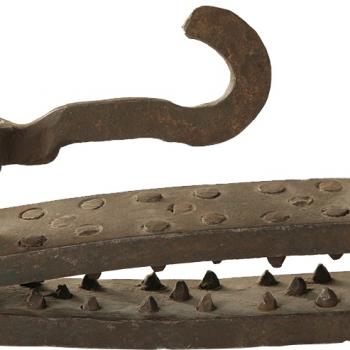
If you follow this blog you can probably guess my politics.
But you might be surprised to learn that I seldom address electoral politics in the course of my ministry. I’ve never endorsed a candidate or even criticized an office holder directly.
I’ve been a pastor to many people with whom I’ve disagreed about electoral politics. I suppose one reason these people have stuck with me as their pastor is because I’ve not made agreeing with me on electoral politics a condition of church membership even implicitly.
My duty is to care for the souls entrusted to me.
Don’t read anything quisling into that. I’ve denounced abortion from the pulpit (supporting abortion on demand is sinful) and I’ve done my best to uphold marriage biblically understood (including oversight of church discipline for those who have been unfaithful or have contradicted biblical teaching on the subject) . But issues like these are few in number, which means that Christians can disagree about a whole lot politically for good reasons.
I believe that most of the time electoral politics is an exercise in wisdom and not so much a matter of righteousness. There are some good arguments to be made on either side of the minimum wage issue, it seems to me. And even something like the legalization of marijuana can’t be reduced to simple right and wrong. Politics calls for prudential judgment, and nothing is settled for all eternity by it. 30 years ago who could have imagined that Russia would become a voice for keeping religion in politics? Things can change quickly.
When it comes to the care of souls a good minister is something of a psychologist. Psyche is Greek for soul, after all. And who should be more concerned with the ways of the soul than a minister?
Psychologically, politics is a lot like sex and money, people can get really irrational about it. I think it is because it touches primordial fears and needs. It’s hard to think straight when something affects us so deeply. And often our political dispositions are formed early in life and are so bound up with personal history and ethnic identity that a change in political affiliation is something like a religious conversion. (There’s another thing people can get weird about.)
My ability to live with people I disagree with on politics goes a long way back. My mother was a New Deal Democrat (pretty much a socialist), my father was a registered Libertarian. I think I was 7 or 8 when I realized I disagreed with my mother about nearly everything when it came to politics. Knowing I saw the world differently than my father came later. (In good Libertarian fashion he believed he was only bound to us by human legal conventions. He deserted the family when I was eleven.)
When it comes to the ministry, you really need to make the main thing the main thing. And arriving at the political implications of the Christian faith may require a few steps. In some cases, you may never get to speak to them directly. This calls for wisdom, and an ability to live with ambiguity, at least for a while. Here’s an example of what I mean.
In my last church I enjoyed the privilege of ministering to distinguished elderly couple. (The husband wore an ascot to church.) He had been a world-class economist and a diplomat, (He’d even been one of the architects of the G-7). His wife was a painter, and their home in Chatham (this was on Cape Cod) was filled with her oils depicting street life in Madrid, Paris, and other European cities. I recall visiting them in their home for the first time. I was brought into the parlor and after I had taken a seat and had received the offer of a glass of sherry, I took in my surroundings. The walls were filled with photographs of liberal politicians. There were my parishioners with Kennedy, and with Johnson, and with Gore, and even with Bill Clinton. And each of the photos was personalized, expressing thanks for service (and financial support).
When I turned back to the husband he said to me, “Pastor, thank you for coming. I’d like to talk to you today about the work of the Holy Spirit. You see, I’m concerned for the salvation of our gardener.”
I knew what I needed to do at that moment. I needed to focus on the task at hand.
Even though I spent many an afternoon with him, we only got around to politics once. Here it is in a nutshell: he thanked me for not bringing it up. (My guess is he could guess mine.)
Instead we talked about the book of apologetics he was working on. He was something of a C. S. Lewis fan. Lewis had played a role in his conversion and he hoped that he could do the same for other people.
Well, I eventually buried his wife, and not long after that, him. I miss them both. They were lovely people. They seemed to like me too. He dedicated his book to me.












